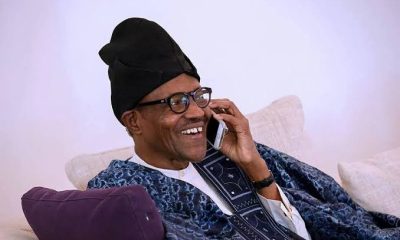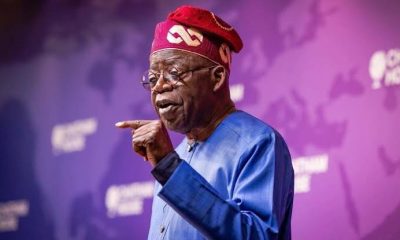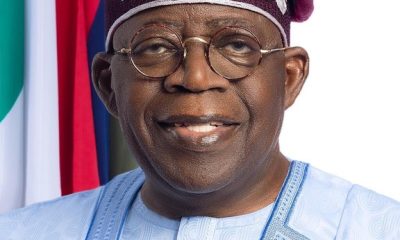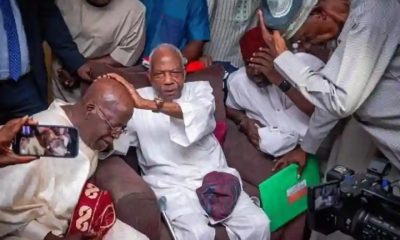News
FG Funded 422 Persons: Presidency Lists Takeaways From COP28
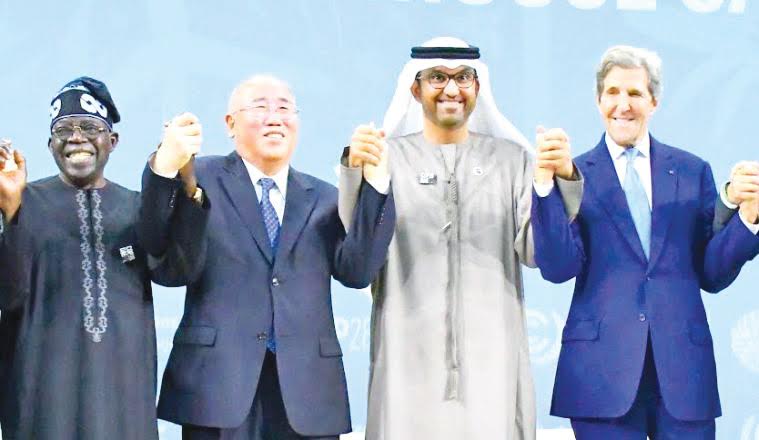
The Federal Government has noted with interest the public conversation on the number of delegates from Nigeria attending the ongoing Climate Summit in Dubai, otherwise called COP-28, and the need to provide clarity in line with a standing pledge to conduct itself with transparency and accessibility regarding public information.
The Convention of Parties (COP) to the United Nations Framework Convention on Climate Change (UNFCCC) is the world’s pre-eminent Climate Change Conference, attended this year (COP-28) by more than 70,000 participants and delegates from over 100 countries. Nigeria’s representation is very much in line with our status as Africa’s leading Sovereign voice and player in climate action.
Parties to this Convention from Nigeria include government officials, representatives from the private sector, civil society, the voluntary sector, state governments, media, multilateral institutions, representatives of marginalised communities, and many others.
It is imperative to point out that the overall Nigerian delegation to COP-28 comprises Government-sponsored (Federal and State Governments) and non-government-sponsored participants (from Private Companies, NGOs, CSOs, Media, academia, etc).
The Federal Government-funded delegation is made up of a total of 422 persons, as follows:
1. National Council on Climate Change = 32
2. Federal Ministry of Environment = 34
3. All Ministries = 167
4. Presidency = 67
5. Office of the Vice President = 9
6. National Assembly = 40
7. Federal Parastatals/Agencies = 73
As the biggest economy and most populous country in Africa, with a substantial extractive economy and extensive vulnerability to climate change, Nigeria has a significant stake in climate action, and our active and robust participation at COP is therefore not unwarranted.
COP-28 presents an array of investment and partnership opportunities for the various sectors affected by climate change, and Nigeria is already benefiting from its ongoing participation, as demonstrated by the following:
1. Nigeria and Germany signed an accelerated performance agreement to expedite the implementation of the Presidential Power Initiative (PPI) to improve Nigeria’s electricity supply. The agreement was signed by Mr. Kenny Anuwe, the Managing Director and CEO of FGN Power Company, and Ms. Nadja Haakansson, Siemens Energy’s Senior Vice President and Managing Director for Africa, at a ceremony witnessed by President Tinubu and Chancellor Scholz.
2. President Tinubu hosted a high-level meeting with stakeholders and investors on the Nigeria Carbon Market and the Electric Buses Rollout Programme on the margins of the COP28 climate summit.
a. The President unveiled the Nigeria Carbon Market Activation Plan, co-chaired by the Executive Chairman of the Federal Inland Revenue Service (FIRS), Mr. Zacch Adedeji, and the Director-General of the National Council on Climate Change (NCCC), Dr. Dahiru Salisu.
b. The Electric Buses program is only the first step in a series of innovative, clean, modern, and sustainable initiatives across diverse sectors, all aimed at simultaneously addressing climate change-related challenges, reducing carbon footprint, modernizing infrastructure systems, and positioning Nigeria as an attractive destination for global investments.
3. Nigeria stands to benefit from the Loss and Damage Fund established during COP-27 in Egypt and formally operationalized at the opening plenary of COP-28 in Dubai. The Fund will provide substantial non-debt financing to support countries most affected by the impact of climate change. Hundreds of millions of dollars have already been pledged as contributions to the Fund.
4. The President also met the President of UAE to concretize engagements between the two countries. This is aside from the bilateral talks held with several countries and multilateral partners.
It should be highlighted that, over the years, Nigeria has firmly demonstrated its climate action credentials by being the first African country to launch its Energy Transition Plan, the first African country to issue a Sovereign Green Bond, and one of the first to pass national climate change legislation.
President Tinubu has been unequivocal in his position that Africa, which is battling problems of poverty and security and struggling to provide education and healthcare to her people, cannot be told to abandon its primary source of income, which is mostly from extractive industries, without the West providing the funding and investment in alternative and clean energy sources.
Since assuming office, President Tinubu has been a vocal champion for the African continent on the global stage, whether at the United Nations General Assembly (UNGA), the G20, or the ongoing COP-28. The President has been supported by an equally active and engaged Nigerian delegation at these various fora.
It is, therefore, essential to keep setting the records straight while assuring Nigerians that President Tinubu and other officials on the Federal government delegation are in Dubai for serious business, not a jamboree.
Headline
Prince Harry visits sick Nigerian soldiers in Kaduna

Prince Harry and his team visited the 44 Nigerian Army Reference Hospital in Kaduna to interact with wounded soldiers who are receiving treatment.
The Duke of Sussex is in Nigeria with his wife to champion the Invictus Games, which Harry founded to aid the rehabilitation of wounded and sick servicemembers and veterans.
Nigeria joined the Invictus Community of Nations in 2022 becoming the first African country to join.
Prince Harry’s visit to Kaduna came 68 years after his late grandmother Queen Elizabeth II visited the state during the time of the late Premier of Northern Region Sir Ahmadu Bello.




News
Senate approves death penalty for drug traffickers
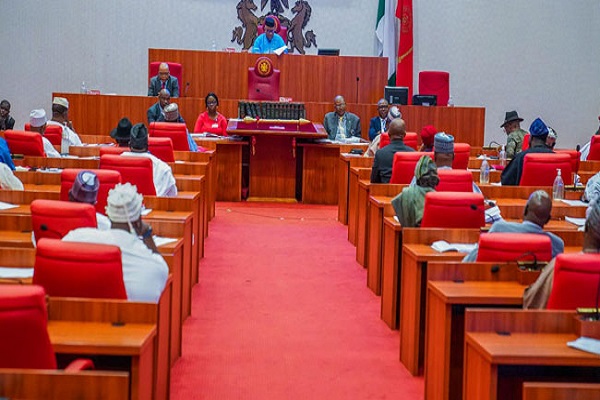
Senate on Thursday, May 9, approved the death penalty for those convicted on the charge of drug trafficking in the country.
The punishment prescribed in the extant NDLEA Act is a maximum sentence of life imprisonment.
The resolution of the Senate followed its consideration of a report of the Committees on Judiciary, Human Rights and Legal Matters and Drugs and Narcotics, National Drug Law Enforcement Agency (NDLEA) Act (Amendment) Bill, 2024.
The Chairman of the Committee on Judiciary, Human Rights & Legal Matters presented the report during plenary, Senator Mohammed Monguno (APC-Borno North).
The bill, which passed its third reading, aims to update the list of dangerous drugs, strengthen the operations of the NDLEA, review penalties, and empower the establishment of laboratories.
Section 11 of the current act prescribes that “any person who, without lawful authority; imports, manufactures, produces, processes, plants or grows the drugs popularly known as cocaine, LSD, heroin or any other similar drugs shall be guilty of an offence and liable on conviction to be sentenced to imprisonment for life” was amended to reflect a stiffer penalty of death.
Although the report did not recommend a death penalty for the offence, during consideration, Senator Ali Ndume moved that the life sentence should be upgraded to the death penalty.
During a clause-by-clause consideration of the Bill, Deputy Senate President Barau Jibrin, who presided over the session, put the amendment on the death penalty to a voice vote and ruled that the “ayes” had it.
But Senator Adams Oshiomhole objected to the ruling, saying that the “nays” had it.
He argued that matters of life and death should not be treated hurriedly, but Barau said it was too late, as he failed to call for division immediately after his ruling.
The bill was subsequently read for the third time and passed by the Senate.
-

 Headline2 days ago
Headline2 days agoSuspend cybersecurity levy– Reps to CBN
-

 Headline2 days ago
Headline2 days agoTinubu resumes work after foreign trip
-

 Business2 days ago
Business2 days agoNigeria needs over $2bn to revive Ajaokuta Steel Plant, says Minister
-

 News2 days ago
News2 days agoShan George’s money returned to Zenith Bank account
-

 Entertainment3 hours ago
Entertainment3 hours agoAMVCA Cultural Day: BBNaija’s Neo, Venita win Best Dressed Male, Female
-

 Metro3 hours ago
Metro3 hours agoEx-Sports Minister laments after hospital neglected him for hours over N80000 deposit
-

 Headline3 hours ago
Headline3 hours agoPrince Harry visits sick Nigerian soldiers in Kaduna

